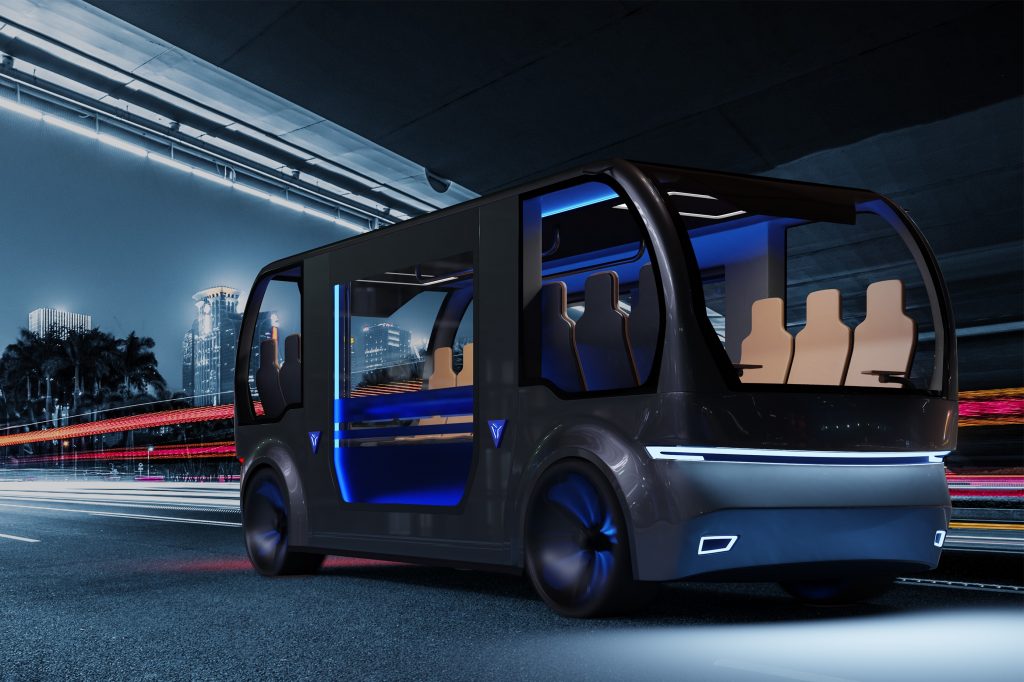
Intel’s driverless technology subsidiary Mobileye plans to develop fully electric autonomous shuttles with its partners for deployment in public and private communities across North America, the companies announced Feb. 14.
Aimed at first- and last-mile applications in urban areas, the shuttles are due to begin production deployments in the United States starting in 2024 and are designed to meet automotive industry and safety standards for public road use. The companies aim to develop vehicles capable of level 4 autonomy — that is, the ability to act without any human intervention in the vast majority of situations.
Jerusalem-based Mobileye, which Intel acquired in 2017, claims about 80% of the market of advanced driver assistance systems (ADAS) that can automatically keep a car within its lane or apply brakes.
It will provide the self-driving systems for the new shuttles.
“The full benefits of autonomy can only be reached with scale. Working with Beep and Benteler, Mobileye aims to mass-produce first- and last-mile self-driving mobility solutions that will enable the convenient, accessible and safe movement of people across North America,” Johann Jungwirth, vice president of mobility-as-a-service at Mobileye, said in a statement.
Paderborn, Germany-based electric vehicle firm Benteler EV Systems will produce the autonomous shuttle in the United States.
“Autonomous movers are the solution for future public transportation, solving the mobility challenges of increasing urbanization and emissions,” Marco Kollmeier, managing director of Benteler EV Systems, said in a statement. “These movers need to be robust for 24/7 public or commercial use, at optimized costs and with excellent riding comfort. Consequently, we decided to go for this strategic collaboration with our partners Mobileye and Beep, to build autonomous movers delivering exactly against these market demands. Another example of how we make the mobility of tomorrow lighter, safer and more sustainable.”
Lake Nona, Florida-based self-driving shuttle operator Beep will help in the planning, deployment and management of the new vehicles. The company successfully tested autonomous electric shuttles in many public road projects for tens of thousands of riders over tens of thousands of road miles in 2021.
“Beep’s well-established U.S. footprint for our autonomous mobility operations model, which incorporates machine learning, contextual route intelligence and Beep’s existing centralized command center platform, combine with Benteler’s and Mobileye’s manufacturing expertise to make this the first alignment of all capabilities needed to successfully scale the deployment of this important transformation in passenger mobility,” Joe Moye, CEO of Beep, said in a statement.
The companies hope the shuttles will help address “micro-transit” problems in first- and last-mile transportation networks, including road congestion, road safety and mobility access.”Multipassenger micro-transit needs are ever-increasing in our cities and towns globally and must be addressed in order to reduce road congestion, protect the environment and provide safe, reliable mobility for all to access,” Hinrich Woebcken, advisory board member for Beep and former CEO of Volkswagen North America, said in a statement. “Bringing to market an affordable, automotive-grade, electric, autonomous mover is a solution that will transform mobility as we know it today.”

